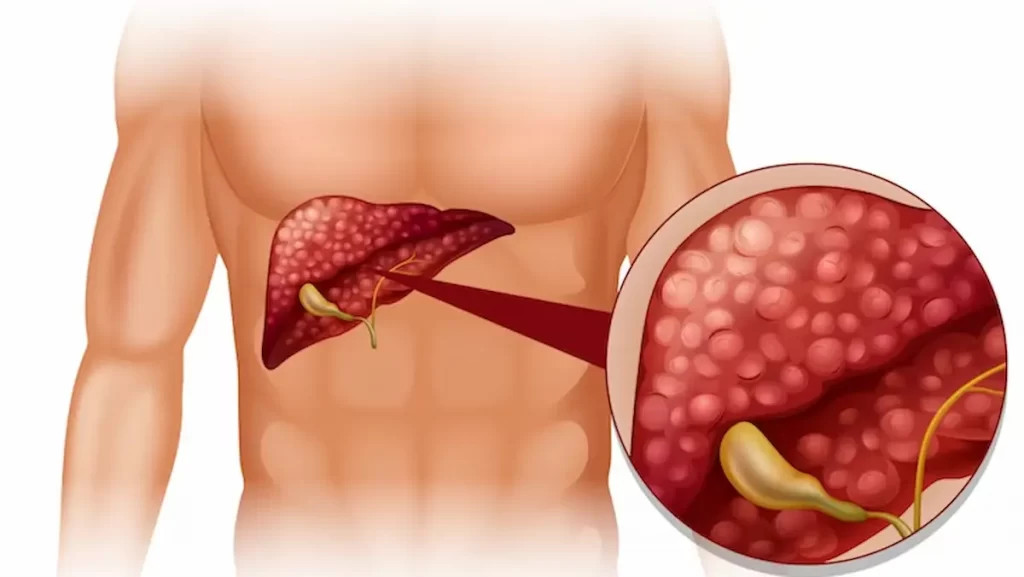
Liver cancer or hepatocellular carcinoma is a malignant tumor that originates in the liver cells. It is a significant global health concern and one of the leading causes of cancer-related deaths worldwide. This article provides comprehensive insights into liver cancer, including its causes, risk factors, symptoms, diagnosis, and treatment options.
By understanding liver cancer, individuals can take proactive measures to prevent its development, seek timely medical care, and make informed decisions about their liver health. Seek the best liver cancer treatment in Chennai to address your specific needs and ensure the highest quality of care.
This section explores the causes and risk factors associated with liver cancer. It explains that the primary cause of liver cancer is chronic liver disease, particularly cirrhosis. Chronic viral hepatitis, including hepatitis B and hepatitis C, is a major risk factor for the development of liver cancer.
Other risk factors for liver cancer include excessive alcohol consumption, non-alcoholic fatty liver disease (NAFLD), aflatoxin exposure, tobacco use, obesity, diabetes, and certain inherited liver conditions. The emphasis on the Best Liver Cancer Treatment in Chennai underscores the significance of comprehending these risks and adopting preventive measures to reduce the likelihood of developing liver cancer.
Accessing treatment for liver cancer in Chennai is crucial for comprehensive care and optimal outcomes. Choosing the best liver cancer hospital in Chennai is vital to ensure the highest quality of treatment.
Here, the focus is on the symptoms and diagnosis of liver cancer. It explains that early-stage liver cancer may be asymptomatic, but as the tumor grows, symptoms such as abdominal pain, weight loss, fatigue, jaundice, and swelling in the abdomen may manifest.
The section discusses the diagnostic techniques used to detect liver cancer, including imaging studies such as ultrasound, CT scans, and MRI, as well as blood tests to assess liver function and tumor markers. It emphasizes the importance of early detection through routine screening, particularly for individuals at high risk.
Treatment options at the best liver cancer hospital in Chennai depends on several factors, including the stage of the disease, the extent of liver function, and the overall health of the individual. This section explores the various treatment modalities for liver cancer, including surgical resection, liver transplantation, ablation techniques (such as radiofrequency ablation and microwave ablation), trans arterial chemoembolization (TACE), targeted therapy, and systemic chemotherapy.
It discusses the benefits, risks, and considerations for the best liver cancer treatment in Chennai and emphasizes the importance of individualized treatment plans.
After receiving comprehensive treatment for liver cancer in Chennai, surveillance and follow-up care are essential. This section discusses the importance of regular monitoring through imaging studies, such as ultrasound or CT scans, and blood tests to detect any recurrence or new tumors. It also emphasizes the significance of ongoing medical follow-up to manage potential side effects of treatment, address any new symptoms, and provide support and counseling for the individual and their family. If you're seeking the best liver cancer treatment in Chennai, these post-treatment measures play a crucial role in ensuring the overall well-being and long-term success of the treatment.
Preventing liver cancer involves adopting a healthy lifestyle and managing risk factors:
Regular medical check-ups and liver health monitoring are also essential for early detection and prevention.
Proper diet and nutrition are crucial for liver cancer patients to support treatment and enhance quality of life.
A tailored nutrition plan, guided by a healthcare professional, can significantly improve treatment outcomes and overall well-being.
At the best liver cancer hospital in Chennai, the experts offer a comprehensive range of treatment options tailored to each patient’s specific condition. These may include surgical interventions like liver resection or liver transplant, advanced radiation therapies, targeted drug therapies, and innovative clinical trials. The multidisciplinary team of experts works collaboratively to devise personalized treatment plans for the best possible outcomes.
Patients can easily request a second opinion by reaching out to the best liver cancer hospital in Chennai. The expert team will review your medical records and conduct thorough evaluations to provide an unbiased assessment. They believe that empowering patients with multiple expert perspectives helps them make informed decisions about their treatment journey.
Absolutely! The experts at the best liver cancer hospital in Chennai, recognize that liver cancer affects not only the patient but also their loved ones. They are committed to providing comprehensive support services, including counseling, support groups, nutritional guidance, and pain management in a caring and compassionate environment that addresses the holistic needs of patients and their families throughout the liver cancer treatment process.
CTS Hospital. is the best best hospital for liver cance. It is renowned for its expertise in liver cancer treatment, state-of-the-art facilities, and a team of highly skilled medical professionals. CTS Hospital offers comprehensive care, advanced diagnostic techniques, and a range of treatment options, ensuring the best possible outcomes for patients facing liver cancer.
The most successful treatment for liver cancer depends on the stage of the cancer, but it often involves a combination of therapies such as surgery, liver transplant, chemotherapy, radiation therapy, and targeted drug therapies. For specific recommendations and information on the best liver cancer hospital in Chennai, I recommend conducting an online search or consulting with a healthcare professional to find the most current and suitable options for your case.
Chennai is renowned for its advanced medical facilities and specialized cancer treatment centers. It offers top-notch care for cancer patients, including those with liver cancer. CTS Hospital in Chennai stands out as one of the best liver cancer treatment centers in the region. Their experienced medical professionals, state-of-the-art technology, and compassionate approach make it a trusted choice for individuals seeking comprehensive cancer care in Chennai.